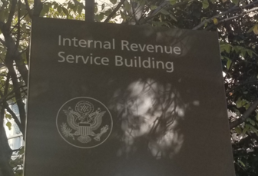
You Control What You Pay in Tax, it Doesn’t “Happen to You”
If you pay attention and plan your tax outcomes proactively, there are many things you can do to reduce your tax bill. But the planning and the resulting activities that you need to engage in to achieve those outcomes are all year-round actions you must take, not just things to do the week before you file. Start by opening your calendar and marking a day each month to spend an hour on your taxes. That’s 12 hours a year. If when you file your taxes those year-round activities saved you $1500, then you were “paid” $125.00 an hour, which is worthwhile! If you saved $10,000.00 in taxes, that would be $833 per hour. Sign me up for that job!
Start with looking into your withholding, as many taxpayers are surprised at tax time with a bill they were not expecting. Owing a large lump sum to Uncle Sam in the middle of winter, just after the holidays is not fun for anyone! There is no great mystery to withholding. There is a link on the IRS website, https://apps.irs.gov/app/tax-withholding-estimator where you can enter your data and it will tell you what to withhold. Then you give that number to HR. It is easier to have $51.92 less per pay period take home than to come up with $1350.00 at tax filing time.
Next, ask HR if there are any pretax saving, benefits or other retirement plans you can participate in. Same concept, if you already spend $700 a year on your health, medications, doctors’ visits, etc., and you’re not putting that $700 in your employer’s HSA, FSA or other pretax account first and paying out of that, then you’re missing the tax planning opportunity! With one of those planning hours, add up everything you spent on your health last year, look at the employer’s rules for what items can be purchased through the FSA, then add it up, and go to HR and have at least that averaged out and deducted pretax from each pay period. You could argue that paying into a 401(k)s is using money that you don’t have in your tight weekly budget, but participating in an FSA/HSA when you are already spending after tax on health items is a no-brainer that you cannot “argue away,” as it saves you dollars and doesn’t take away from your weekly budget.
We could make this a lengthier blog by detailing many other tax planning strategies, but we hope the point has been made. This needs to be put on your calendar and worked on monthly, in steps by you, as a “hobby,” and given a reasonable amount of time, you will find there is a lot that can be done. Watching Game of Thrones for the third time instead is not going to put money in your pocket!